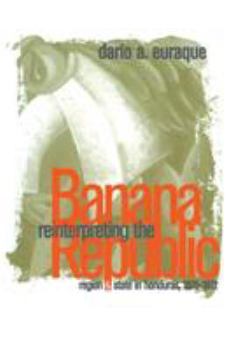Reinterpreting the Banana Republic: Region and State in Honduras, 1870-1972
Select Format
Select Condition 
Book Overview
In this new analysis of Honduran social and political development, Dar degreeso Euraque explains why Honduras escaped the pattern of revolution and civil wars suffered by its neighbors Guatemala, El Salvador, and Nicaragua. Within this comparative framework, he challenges the traditional Banana Republic 'theory' and its assumption that multinational corporations completely controlled state formation in Central America. Instead, he demonstrates how local society in Honduras's North Coast banana-exporting region influenced national political development. According to Euraque, the reformism of the 1970s, which prevented social and political polarization in the 1980s, originated in the local politics of San Pedro Sula and other cities along the North Coast. Moreover, Euraque shows that by the 1960s, the banana-growing areas had become bastions of liberalism, led by local capitalists and organized workers. This regional political culture directly influenced events at the national level, argues Euraque. Specifically, the military coup of 1972 drew its ideology and civilian leaders from the North Coast, and as a result, the new regime was able to successfully channel popular unrest into state-sponsored reform projects. Based on long-ignored sources in Honduran and American archives and on interviews, the book signals a major reinterpretation of modern Honduran history.
Format:Paperback
Language:English
ISBN:080784604X
ISBN13:9780807846049
Release Date:January 1997
Publisher:University of North Carolina Press
Length:270 Pages
Weight:1.06 lbs.
Dimensions:0.7" x 6.2" x 9.3"
Customer Reviews
0 rating





